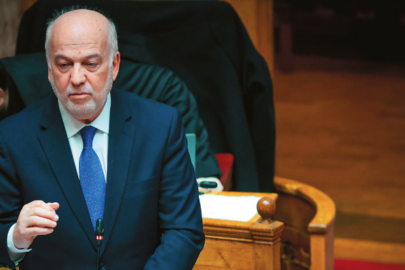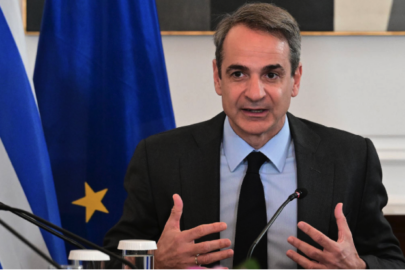Radical changes in all levels of education – from kindergartens to postgraduate – announced by the political leadership of the Ministry of Education for the period immediately after the passage of the bill on universities, which is scheduled for Friday.
As it is known, with this bill – which is being rewarded demographically since polls show that well over 50% of Greek society agrees with the establishment of non-state universities – the government seeks, in addition to opening up educational opportunities in our country, and the resolution of a historical loose end, to indirectly regulate post-secondary education which, among other things, includes 35 colleges that operate almost unregulated in cooperation with foreign universities and give their students, who number about 32. 000, degrees with full professional rights.
New Panhellenic examinations
One of the first issues that Kyriakos Pierrakakis will deal with after the passage of the bill is the Panhellenic Examinations for admission to universities:
The Ministry of Education is talking about starting a dialogue immediately after the passing of the legislation on universities, noting that the current system has the serious advantage of ensuring impartiality, but has the equally serious disadvantage of judging each candidate’s progress in four tests, without taking into account the broader performance of students during their high school education.
What they are now considering – indicating in advance that they will seek a broad consensus – is a combination of examinations using the question bank, with the aim of providing a longitudinal picture of each candidate and taking into account more parameters for university admission than the current system of the Panhellenic Examinations.
Student migration
The number of Greeks attending either foreign universities or the 35 colleges operating in Greece is estimated at 72,000 – about 5,000 more than the number of entrants in the last Panhellenic Examinations. This means that in addition to those who enter universities through the Panhellenic Examinations, there is another generation studying either abroad or in college.
The financial cost of studying abroad is variable – and Greek students are studying either at non-profit or private universities. On the other hand, colleges are for-profit organisations with no real control by the state over the level of education they provide, which ultimately depends on the foreign university they work with.
Of the 40,000 Greeks studying abroad, half – about 20,000 – are in Cypriot universities.
It is believed that some of them will rush to submit a proposal for the licensing of their branch in Greece in order to make them an even more attractive option for Greek students.
At the same time, interest has also been expressed by ten major universities abroad – for example, the Ministry of Education is rumoured to be in talks with the Sorbonne.
It is noted that the bill provides for a “threshold” through the Panhellenic exams for those who want to study at the non-state HEIs that will operate in the country.
Specifically, it is provided that in order to be eligible to apply for enrolment in such a branch, one must have exceeded the minimum entrance requirement of the Panhellenic, which means an average score of around 8.
However, it is considered certain that any new university coming to the country will seek to set such enrolment criteria that are consistent with its international ranking – that is, the higher a university is, the more stringent the enrolment criteria it will apply. And these criteria will have to be approved by the National Authority for Higher Education.
The future of colleges
With the passing of the bill on universities, those in charge will seek to indirectly regulate the post-secondary education market:
Today it seems from extremely difficult to extremely uncertain that some of the 35 colleges operating in Greece will manage to turn their cooperation with foreign universities into the establishment of a branch of the parent university in Greece, with the participation of the college, probably with some obvious exceptions, namely the already operating non-profit colleges.
As is well known, the transition to the legal status of “non-profit” requires private colleges to assign rights to the foreign university with which they will cooperate.
They now pay the foreign university only royalties, in many cases under a franchise agreement, ranging from 800 to 1,200 per student per year.
Essentially, the operating philosophy of Greek colleges will change – for the few that may manage to evolve – with foreign universities now having the ‘upper hand’.
Therefore, it is considered certain that most of the colleges will continue to operate as they do today, but with the entry of non-state branches that will award degrees with full professional as well as academic rights – something that colleges cannot do – it is estimated that they will “fall out of class” in some way.
Responding to criticism from opposition parties who argue that the non-state universities will in fact be for-profit colleges, Education Ministry sources recalled that the licensing criteria for these institutions will be the strictest in Europe, with a number of “hard” criteria, both in terms of building and university infrastructure, but also in terms of the status of teachers, since it will be required, among other things, that 90% of the teachers have a doctorate, which is not the case in the colleges currently operating in our country.
Scholarships are also required for 10% of students and high letters of guarantee, and in any case, if the obligations are not met, there will be the possibility of the licence being withdrawn.
At the same time, double licensing is foreseen for every branch of a foreign university in Greece: it will have to get approval both from the country where it is based and from the NTHAAE, which will control both public and non-public universities, something that does not happen in any other country where branches of foreign universities operate.
It is noted that PASOK – which changed its initial stance and voted against the bill – accuses the government of preparing to allow speculative funds and private universities to operate “supposedly non-state universities”, referring to “settling interests”.
However, a private – i.e. for-profit – university and a fund can form a non-profit legal entity and claim a licence to operate a non-state non-profit university.
Therefore, this complaint amounts to a trial of intent, since there are, after all, criteria set by law, which if not met, then they will not be granted a license.
Besides, the reverse is also true, a non-state, non-profit foreign university could attempt to establish a for-profit university in our country, but this cannot be judged before it happens.
At the same time, for-profit universities in Cyprus are already cooperating with Greek public universities, without this having caused any reaction from the opposition, as Kyriakos Pierrakakis stressed in Parliament the day before yesterday.
The public universities
The establishment of non-state, non-profit branches of foreign universities may monopolize the publicity about the Pierrakakis bill, but 85% of its provisions concern public universities, including many of the universities standing demands for more funding, more autonomy and less bureaucratic operation.
As the Minister of Education has announced, in the next few years public universities will receive, from various sources, funding in excess of 1.5 billion euros.
Among the provisions, those concerning the full administrative autonomy of the Open University and the upgrading of the Democritus of Thrace stand out.
Multiple books
Alongside the changes to the Panhellenic exams, the Ministry of Education is promoting a series of changes in schools – from multiple textbooks for each subject to interactive whiteboards and from the digital tutorial that has been announced to changing the way some subjects are taught.
Copernicus: The winter of 2023-2024 was the warmest ever in Greece – meteo maps
‘Multiple books’ – already being written and due to reach schools by September 2025 – means that there will be more than one book for each subject and each teacher will be able to choose which one to teach their pupils.
The Ministry of Education is investing heavily in the interactive whiteboards that will be put into all schools, and the digital tutoring system is being prepared for the next school year, starting this year but in full form for the next school year, with the ambition of reducing the need for tutoring for students.
Changes are also being prepared in the teaching of some subjects, such as Literature, which is planned to be taught with full textbooks rather than just Anthology.
At the same time, there will be a digital application through which parents will be able to monitor their children’s educational progress, as well as see any absences, which has been happening for years in most private schools.
The tracking of students’ absences is expected to put a dent in the fight against juvenile violence, for which there is to be a national campaign.
There will also be school vocational guidance with free tests, and upgrading of computer science teaching with qualification certification.





































